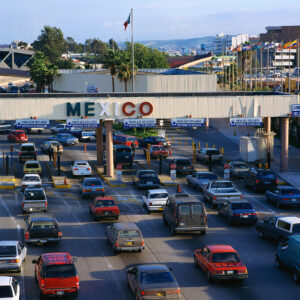 As it write this, the networks are still projecting winners before all the votes are in, but it appears the Republicans will achieve a majority in the House of Representatives and make considerable gains in the Senate. Republicans are calling it a rejection of the Democrats’ big government solutions.
As it write this, the networks are still projecting winners before all the votes are in, but it appears the Republicans will achieve a majority in the House of Representatives and make considerable gains in the Senate. Republicans are calling it a rejection of the Democrats’ big government solutions.
This is an old song. Democrats believe more government regulation is almost always the answer and Republicans think the opposite. Christians can watch this left-right tug-of-war and be tempted to pick sides, when really we are being asked to pick between Tweedledee and Tweedledum.
Any time the government regulates something it is restricting the freedom of someone. But when people are immoral, greedy and take advantage of others, the government is compelled to act to protect the victims of those who do not exercise their freedom responsibly. The left-right game is principally an argument over control of the thermostat: more freedom, along with greed and abuse, or more protection for consumers, along with less freedom and higher taxes. While fighting over the thermostat is probably necessary, neither the left or the right offer a real solution for the problem. Fortunately, there is a third way.
More responsible people need less government regulation. Less government regulation means more freedom. Therefore, more responsible people means more freedom. Jesus is in the business of making more responsible people, which is why I’m not particularly rabid about Tweedledee or Tweedledum, but in making disciples. As more people become obedient to Jesus they become more responsible and require less government regulation, which means more freedom for everyone, even those who don’t know Jesus.
So, give to Caesar the things that are Caesar’s. Be informed, get involved in politics, but recognize that fiddling with the thermostat is an adjustment not a solution. GS




